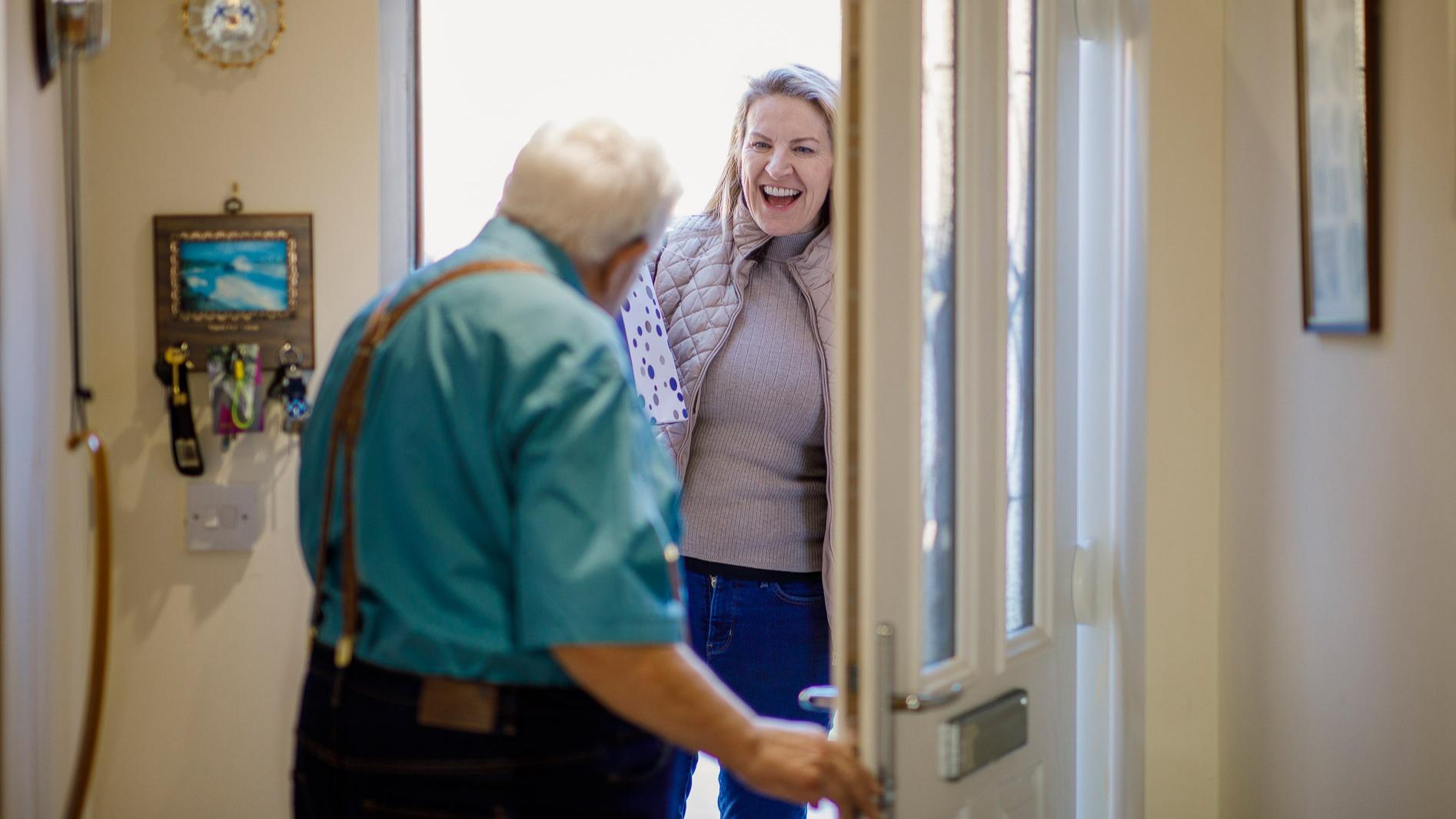
Published: Thursday 3 July 2025
Thank you to those who have engaged with our NDIS Pricing Campaign, No OTs, No NDIS over the past week. We heard from many members who attended OTA’s National Conference last week that you have taken action and felt empowered to make your voice heard on NDIA pricing issues. OTA’s petition now has more than 16,000 signatures, and we have had more than 1,000 people email their MP and this is continuing to climb. If you haven’t joined the campaign yet, we encourage you to help strengthen our profession and make your voice heard.
We have also had several members meet with their local MP to discuss pricing issues and use our new MP Meeting Guide which is a fantastic outcome that helps to spread and amplify our message. If you are successful in getting a meeting with your local MP and want additional support, OTA’s Policy and Advocacy area can support you to prepare. Please email policy@otaus.com.au if you’d like support.
OTA’s advocacy this week
OTA has continued our advocacy efforts this week including a range of significant meetings, leading to some important commitments from MPs and NDIA stakeholders:
Office of NDIS Minister Jenny McAllister – we met with the Minister's disability adviser on two occasions, once with other allied health peaks, and individually to reiterate the impact that travel will have on OT services and the impact of the ongoing price freeze. The Minister’s adviser noted it was a new portfolio area for the Minister and they are still learning the sector and relevant stakeholders. Disappointingly they noted that the pricing decision is a matter for the NDIA Board, not the Commonwealth and indicated that the Minister was not planning on intervening in the decision at the current time. Positive outcomes included the Adviser being receptive to future meetings, developing an understanding of the OT workforce and role under the NDIS, and offer to connect OTA with staff within the NDIA working on priority NDIS reforms, which we are now pursuing.
Independent MP Sophie Scamps – Ms Scamps was receptive to our concerns and was concerned about the impact of the pricing decision on providers and participants. She will be sending a letter to Ministers Butler and McAllister and will be meeting with Minister Butler soon and will raise the issue. She is also will be looking to convene a roundtable on the issue which OTA will seek to engage with.
Nationals MP Pat Conaghan – OTA met with Mr Conaghan with other allied health peaks and briefed him on the impact of the cuts made to hourly rates for other professions, and the impact of the travel rate cut especially on OT based services. He was deeply concerned about the impacts of the travel cuts on his constituents, and regional and remote participants more broadly.He committed to taking it to the Nationals party room, and to liaise with the Coalition to try get it on their agenda, which has now occurred with Senator Anne Ruston’s recent letter to Minster Butler and media comments featured in the Australian last week (more below on this). · Miriam Slattery and Stephen Broadfoot from NDIA’s Provider engagement area – OTA met with key provider liaison staff within the NDIA alongside other peaks to discuss the impact of the latest pricing decision and call for better engagement with the allied health sector. The NDIA acknowledged that their stakeholder engagement has not been adequate and have committed to more regular engagement with OTA and other peaks including regular meetings. The NDIA expects to conduct a special review in to therapy support pricing over the next 18 months after this was recommended in the latest NDIA pricing review report, and OTA has called for better engagement with our sector so we can support evidence and input to show the true value of OTs services. Issues relating to the latest pricing decision have been referred to the NDIA’s pricing branch for follow up.
Impacts of the allied health pricing campaign
Along with OTA, other allied peaks are also continuing their advocacy, and we have seen a wide range of media across print, web and radio discussing the impact of the pricing decision on service provision, especially in regional and remote areas, affecting a range of services including OT. This included a spot on Radio National’s morning program on 26 June, featuring OTA’s Michelle Oliver and Queensland based OTA member Rachel O’Reilly, and a spot featuring WA based OTA member Chris Pearce on 6PR Perth radio.
Advocacy from across the OT sector is also helping promote the message. Read this fantastic article from Deakin University in the Conversation about the critical role of OT’s in disability support and the importance of access to services in a client’s home and community.
Politicians from across the spectrum have been receptive to the allied health sector campaign with Senator David Pocock and Senator Jacquie Lambie expressing their support, along with the Australian Greens and the Coalition who last week wrote to the NDIS Minister Mark Butler demanding Labor delay any pricing changes by at least three months to enable government to properly consider the implications of the price cuts.
OTA’s Next Steps
We are continuing to pursue a range of meetings with decision makers, and working with our peak member body AHPA to develop a forward strategic plan to continue to advocate for fair NDIS pricing.
As part of this we are broadening our networks to include participant and provider groups and small business bodies to ensure we explore all strategic angles to amplify our message and get this issue onto the public agenda through a range of channels including media.
As an example, OTA has also been working with the Council of Small Business Australia (COSBOA) to ensure they understand the impact of the pricing decision on a range of allied health small businesses, and they have agreed to write a joint letter with OTA to Opposition Minister for Small Business Tim Wilson.
To support the campaign we are also seeking vital data and feedback from the profession on the impact of the pricing decision and encourage you to complete our 2025 Provider Survey – see more below.
We are also pursuing a Freedom of Information request to the NDIA to seek the underpinning data and analysis that led to this year’s pricing decision so we can understand their rationale and provide a robust critique.
OTA will also be developing a policy options paper to provide government with suggested alternatives for travel pricing to ensure that providers can still be fairly compensated and support OT travel-based services.
NDIS Provider Survey
Thank you to the hundreds of members who have already completed our NDIS Provider survey. You can tell us how the latest NDIA pricing decision is impacting you and your clients. The survey takes about 10 minutes, and your input gives OTA valuable current data which we can use to help us fight for better OT pay and conditions under the NDIS. Our survey closes 11 July 2025.
Frequently Asked Questions
We have had some members reach out to ask us some questions about the campaign. We will start to add these to our campaign page in coming days but in the meantime have provided some answers below
Why is OTA asking for a 7% increase to OT NDIS rates?
We have based this ask on recent data from by Ability Roundtable, which represents 21% of the NDIA registered provider market, which identified a need for an immediate 7% pricing increase for providers to address current provider losses across small, medium and large providers.
OTA’s advocacy ask also factors in the current economic conditions which include weakening inflation, the fact that cuts have been applied to other allied health professions, and the prevailing bipartisan approach from both Labor and the Coalition to reign in NDIS budget costs.
OTA is aware that practitioners may be experiencing higher losses in some cases and we welcome feedback on our current ask to help inform our future pricing advocacy.
OTA has for many years been advocating for a fit for purpose allied health pricing model which would appropriately cost and fund allied health services, including OT, to meet our long-term goal of a thriving and sustainable NDIS provider market. In the meantime we are pursuing an immediate, urgent pricing uplift to keep providers afloat while we continue to pursue this goal.
Will OTA develop a recommended price for OT fees?
OTA is aware that some other allied health professions have published schedules of suggested fees for services. We have heard from members that they would like OTA to show leadership on OT pricing rates to assist in achieving fair and sustainable remuneration when providing fees under government funded schemes, and in the broader private market.
In the 2025-26 financial year, OTA will invest in work to develop a recommended schedule of fees for OT services. We will engage both economic and legal advice and consult with members as we progress this work.
Why is the NDIA’s using Medicare data for its pricing methodology?
The NDIA’s latest pricing review relies on data from Medicare and private health insurance. OTA maintains that it is not appropriate to compare rates from such different schemes, which utilise a different scope of OT services and different billing rules. It is not accurate to compare rates for a physical rehabilitation appointment, or a Medicare Better Access appointment, with a comprehensive functional capacity review, or delivery of complex therapeutic interventions for a client with multifactorial disability.
NDIA also said they looked at other pricing data through reviewing allied health provider websites. They only looked at 50 data points for occupational therapy, which is a very small sample.
Last year OTA undertook its own analysis of current comparable market pricing from hundreds of OTs which showed that pricing was much higher when comparing disability specific supports. This was provided to NDIA on two occasions, however this was not even acknowledged in the final review report.
NDIA has also disregarded economic modelling provided by Ability Roundtable, a body representing a large number of NDIS service providers, which commissioned Deloitte to undertake economic modelling of the cost of service provision for therapy supports. Their review has shown that provider costs were well in excess of the current maximum price for the ‘therapy supports’ item over the past three review cycles.
The NDIA has now committed to a review of therapy support pricing in the next 18 months. OTA has already told NDIA we expect to be consulted in this work and will keep members updated as this progresses.




